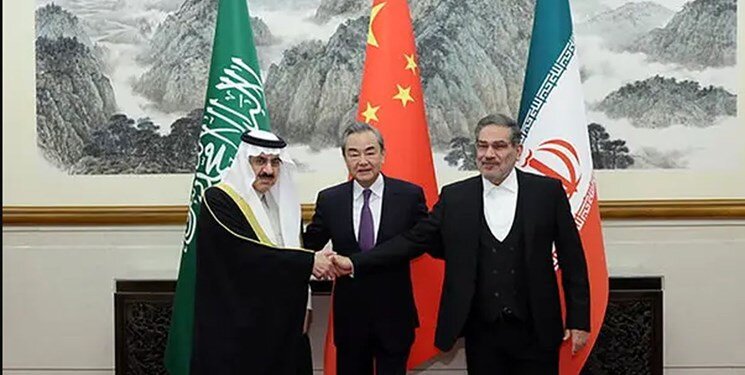Positive but with caution
Iran, Saudi Arabia agree to restore diplomatic ties

TEHRAN – In a surprise announcement on Friday, Iran and Saudi Arabia announced that they would restore diplomatic ties under a Chinese-brokered deal in a maximum of two months.
The deal was abruptly announced after five days of intensive and secret talks in the Chinese capital Beijing. It was signed by Ali Shamkhani, secretary of Iran’s Supreme National Security Council, Musaad bin Mohammed Al-Aiban, the Saudi National Security Advisor, and Wang Yi, Member of the Political Bureau of the Communist Party of China (CPC) Central Committee and Director of the Foreign Affairs Commission of the CPC Central Committee.
Nour News, a media outlet linked to the Iranian Supreme National Security Council, said hours before the announcement that Shamkhani was conducting “very important negotiations” abroad.
“Admiral Ali Shamkhani, secretary of Iran’s Supreme Security Council, has been busy conducting very important negotiations in a foreign country in recent days,” Nour News said on Twitter. “The imminent announcement of the outcome of these negotiations will result in remarkable developments.”
Shortly after that tweet, official media outlets in Tehran and Riyadh dropped the bombshell by releasing a joint trilateral statement by Iran, Saudi Arabia, and China.
“The three countries announce that an agreement has been reached between the Kingdom of Saudi Arabia and the Islamic Republic of Iran, that includes an agreement to resume diplomatic relations between them and re-open their embassies and missions within a period not exceeding two months, and the agreement includes their affirmation of the respect for the sovereignty of states and the non-interference in internal affairs of states,” the joint statement said.
It added, “They also agreed that the ministers of foreign affairs of both countries shall meet to implement this, arrange for the return of their ambassadors, and discuss means of enhancing bilateral relations.”
The statement further said that Tehran and Riyadh agreed two implement the Security Cooperation Agreement between them, which was signed on 17/4/2001, and the General Agreement for Cooperation in the Fields of Economy, Trade, Investment, Technology, Science, Culture, Sports, and Youth, which was signed on 27/5/1998.
The statement concluded, “The three countries expressed their keenness to exert all efforts towards enhancing regional and international peace and security.”
Saudi Arabia cut diplomatic ties with Iran in 2016 when its embassy was stormed by angry Iranian protestors. Since then, the two countries’ relations have been tense. Since April 2021, however, they started talks to patch up their relationship. Five rounds of talks were held in Iraq, with Oman also playing a role in facilitating them.
In the Friday statement, Saudi Arabia and Iran thanked Iraq and Oman for their mediatory efforts.
While Iraq’s mediation was public, China moved ahead with its efforts secretly. Until recently, it was unclear if China played any role in restoring ties between Iran and Saudi Arabia. But the recent visit by Iranian President Ebrahim Raisi to China seems to have greatly contributed to the latest breakthrough.
Mohammad Jamshidi, Deputy Chief of Staff for Political Affairs to the Iranian President, said Friday that the restoration of Iranian-Saudi relations was in part a result of President Raisi’s trip to Beijing.
“Again, Pres. Raisi's policies succeed. During talks with Pres. Xi in Beijing, constructive ideas for the region were discussed & now they bear fruit. Good neighborly & brotherly policies with Eurasian integration create economic & security benefits free from foreign intervention,” Jamshidi said on Twitter in reaction to the Friday achievement.
Iranian Foreign Minister Hossein Amir Abdollahian also attributed the restoration of ties with Saudi Arabia to the Raisi administration’s Neighborhood Policy, which is meant to improve Iran’s relations with its neighbors.
“The restoration of normal relations between Iran and Saudi Arabia provides great capacities to the two countries, the region, and the Islamic world. The Neighborhood Policy, as the key axis of the thirteenth government's foreign policy, is moving strongly in the right direction and the diplomatic system is actively looking for more regional steps,” he said on Twitter.
So far, there have been negative reactions from America and Israel towards this agreement, and it seems that they view themselves as the losers in this situation.
However, despite the optimism and hope, caution should be exercised regarding the dimensions and process of this agreement.
The upcoming months and how Riyadh handles issues such as supporting anti-Iran media and the war in Yemen will determine the extent of progress made.
Leave a Comment